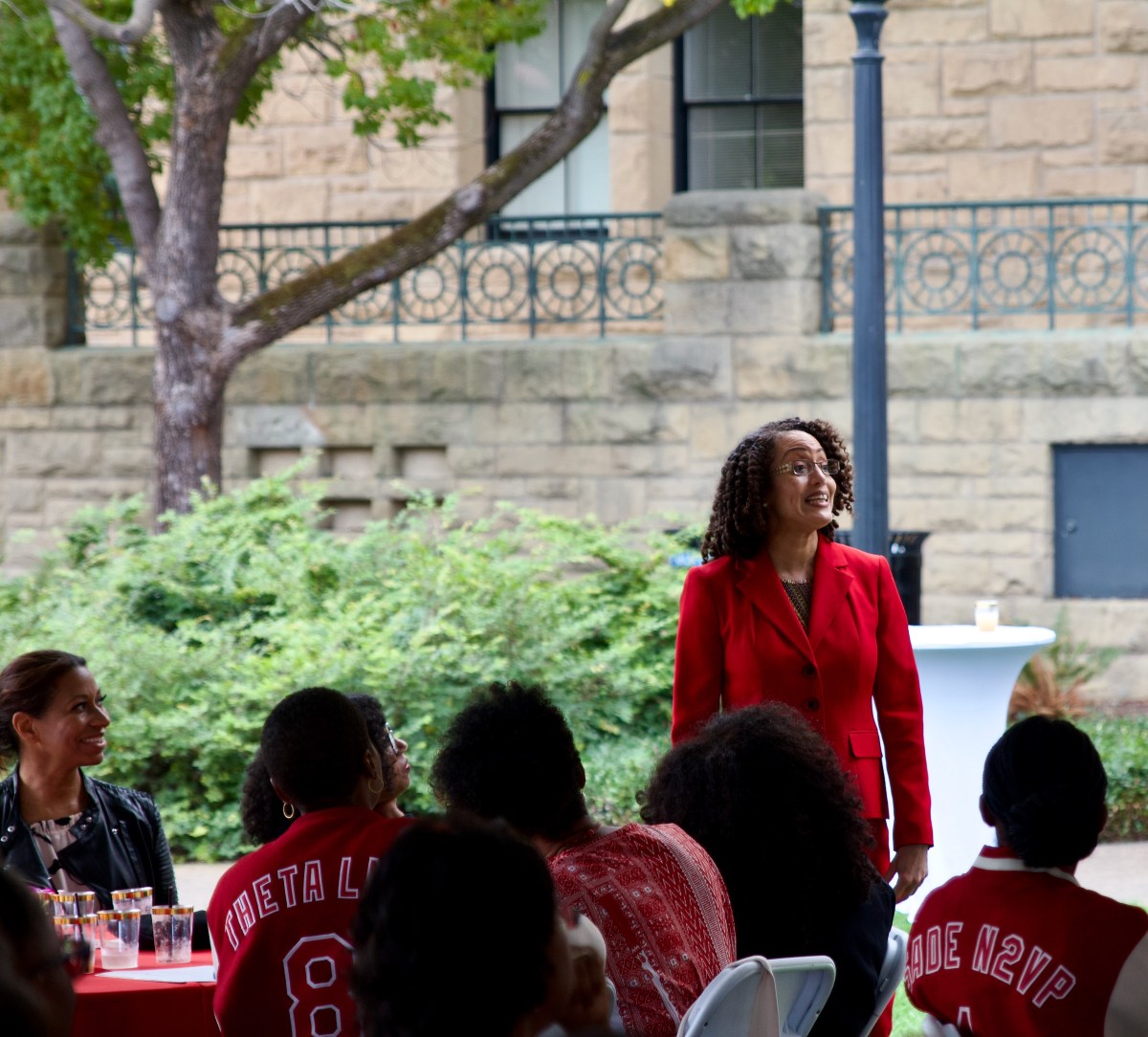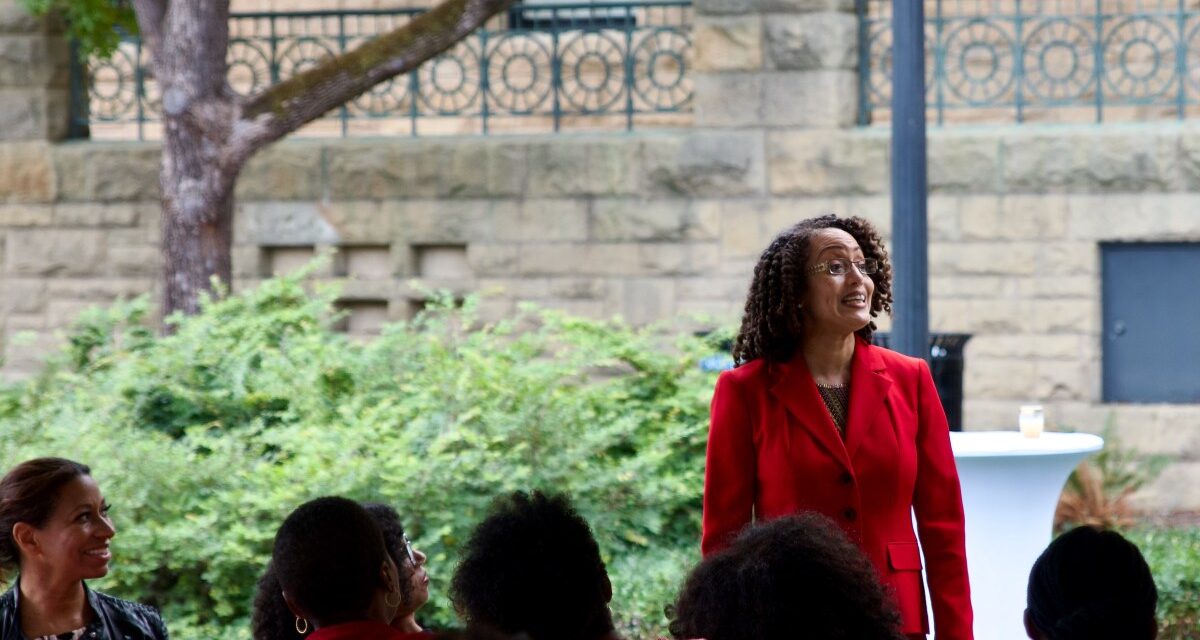Over 140 past and present members of Stanford Delta Sigma Theta Sorority, Inc. celebrated the 40th anniversary of the sorority Sunday morning at Encina Hall over a brunch for Black women.
The event — which drew nearly 100 Black undergraduate women, including those unaffiliated with the sorority — featured speeches from prominent alumni, reminiscing about their time at Stanford and celebrating the sorority’s commitment to sisterhood and public service on and off campus.
“The fact that we’re 40 years and still going on is a testament to fortitude,” said Stephanie Leslie ’84, the first president of the local chapter of the sorority, Omicron Chi.
The story of the Deltas at Stanford begins with Patricia “Patti” Titus ’81, now a superior court judge in Los Angeles County. Titus joined a San Francisco Area chapter of the sorority, Epsilon Nu, as an undergrad because Stanford did not have a chapter at the time. Then an Ujamaa RA, Titus began talking to residents about starting one.
Bringing a Delta Sigma Theta Sorority, Inc. chapter to campus was a long process, said Titus. The University administration and the sorority’s national organization had different standards for what student group autonomy should look like, and neither was willing to give up its rules.
Stanford’s philosophy was “even though you’re a part of a national organization, you should still be autonomous, and Delta’s national organization was having nothing to do with that,” Titus said.
“Stanford would not recognize us, but we wanted to do something so we could make an impact in the local community,” said Margaret-Ann Laing Reed ’84, a past member of the sorority.
The 12 original charter members established a city-wide chapter, Omicron Chi, which also included students from Santa Clara University and College of Notre Dame (now Notre Dame de Namur University) in 1983. Still, they needed University recognition to operate and host events on campus as a chapter of Delta Sigma Theta Sorority, Inc.
“Us as Black women, we wanted [Delta Sigma Theta Sorority, Inc.], and we weren’t just willing to give in,” said Patricia Haley Glass ’84. “If we had to go charter a chapter, drive across the Bay to pledge to be a part of that organization, get a chapter that only had partial privileges on campus, if we have to go elsewhere to do it, we did that.”
Delta Sigma Theta Sorority, Inc. was officially recognized by the University in March 1985 as a Stanford-specific chapter with all the rights of a campus Greek organization and a university chapter of Delta Sigma Theta Sorority, Inc.

40 years later, 130 alumnae women reconvened with current members of the sorority to celebrate the sorority’s legacy on campus.
In a speech, actress and producer Ryan Michelle Bathé ’98 recounted the ups and downs of her career and how her sands — the women who pledged the same year as her — have supported her throughout her life.
“I have all these intersecting identities, and the core of that is sisterhood for me,” Bathé said. “As I have gotten older, I have talked many times with my sands [about] how much more full our lives are because of one another.”
Stacey Dixon ’93, the Biden administration’s principal deputy director of national intelligence, spoke about how the sorority provided a local family for her in college when she could only communicate with her family back home in Washington over landlines and letters.
Another alumna, Cheryl Gray Evans ’90, a lawyer and former state senator and state representative from Louisiana, spoke about how both older and younger Omicron Chi members inspire her “to see what she could be.” The former chapter president reflected on the time she spent on campus and how serving the Stanford community translated to her work as a public servant.
“40 years and we’re just getting started,” said Yvette Birner, one of the chapter’s advisors.
In the years following the pandemic, Black sororities and fraternities have made a comeback on campus. Last year, Kappa Alpha Psi Fraternity, Inc. and Omega Psi Phi Fraternity, Inc. returned to Stanford on a provisional basis, meaning the fraternities have conditional recognition after a period of being inactive.
“It’s been exciting seeing so many new chapters come back to the yard,” said Faith Ajanaku ’25, the current treasurer of the sorority, who organized the event.






